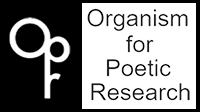////////////////////////////////////////////////////////////////////////////////////////////////////////////////////////////////////////////
anna moser + rachael m. wilson///////////////////////////////////////////////////////////////////////////////////////////
On a Friday afternoon in December 2014, we inhabited a windowless classroom on the 3rd floor of 244 Greene Street, the English Department building at New York University. We had gathered – some fifteen or so women and men – to discuss the recently translated Theory, A Sunday: a collection of feminist texts that had emerged from a writers’ group based in Montreal in the 1980s.
Originally composed in French and published in 1988, this book was overdue for recirculation, dialogue, and a new generation of readers. MC Hyland organized the seminar and invited speakers Krystal Languell and Rachel Levitsky, editors at Belladonna Press, to contribute to the conversation. In past OPR seminars, we had always invited the author of a book on (or of) poetry and poetics to join us in a conversation about the work at hand. But in this instance, speaking with the editors of Theory, A Sunday, we found that we were also able to move beyond our “close readings” of specific texts to reflections on translating, publishing, pedagogy, the building of writing and reading communities, and the both difficult and exciting process of bringing a now-historical document into the present.
Many of us had not heard of the authors of Theory, A Sunday (Louky Bersianik, Nicole Brossard, Louise Cotnoir, Louise Dupré, Gail Scott and France Théoret) before reading Belladonna’s alluringly green volume, its two-tone sections layered like a petit-four: white for the critical writing, grey for the descriptive and poetic pieces. The seminar particularly revealed to us the urgency (and pleasure) of claiming this document for our contemporary moment.
In 2015, a theoretically resolved “practice” of feminism is still elusive. Yet such a notion may, in fact, prove a misguided fantasy, if we understand “feminism” as a necessity that must nonetheless be realized critically, even and especially on the level of its language.1 In the face of these challenges, the intelligent criticism, play, and creativity that characterize Theory, A Sunday confirm for us both the obligation and the real possibility of actively shaping our feminist theory and practice.
When the session was over, so much had been said – thoughts ventured, problems broached, worlds proposed – that we felt our conversation could not be treated as a closed book. The six women who had managed, despite families, jobs, and other time constraints, to organize and maintain generative discussions of theory on Sundays in the 1980s made us want to follow up by instigating a new conversation, with a new group. It is hard to get a group together every Sunday. So we invited participants to respond, in writing, to the material and the occasion. This is that document: an extension, we hope, and an enfolding of a conversation that began elsewhere in another language.
– Anna Moser and Rachael M. Wilson (September 30, 2015)
1. Re: reclaiming “boss/bossy”; questioning “having it all”; figuring out which way to “lean,” et al.↩
